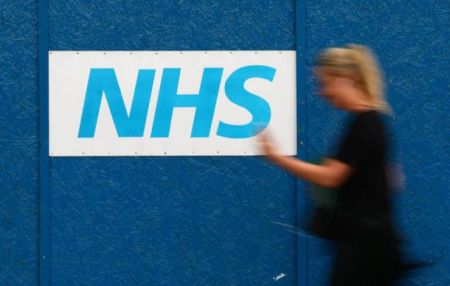England's NHS restricts use of puberty blockers for minors, releases new guidelines

England's National Health Service announced Friday that it will only commission puberty-suppressing hormones as part of clinical research, effectively restricting the use of puberty-blocking drugs for gender transition outside of clinical trials.
The NHS announced the new interim guidance for treating gender dysphoric children earlier this month, releasing a 25-page document outlining a "holistic, multi-disciplinary integrated approach."
The new guidance follows an independent review last year led by Dr. Hillary Cass, "highlighting the significant uncertainties surrounding the use of hormone treatments." Cass is the former president of the Royal College of Paediatrics and Child Health.
The new gender incongruence service, as described in the document, will replace the centralized approach formerly centered at Tavistock Clinic and Portman NHS Foundation Trust.
According to the guidelines, an integrated multi-disciplinary team will determine the best "clinical pathway" for a child with the full involvement of the young person's family. The NHS also advised providers to be mindful when treating children who present themselves as gender dysphoric, particularly pre-pubescent children.
Children who have already received cross-sex hormones or puberty blockers will be treated on a case-by-case basis, according to the NHS.
The institution previously warned that minors who profess that they identify as the opposite gender may be going through a "transient phase."
"Not all children and young people who present with issues of gender incongruence will require direct interaction with The Service; in many cases the most appropriate care can be provided locally including with additional support and consultation by The Service," the June 8 document states.
"A significant proportion of children and young people who are concerned about, or distressed by, issues of gender incongruence experience coexisting mental health, neuro-developmental and/or personal, family or social complexities in their lives."
The institution stressed that the main objective behind the intervention in such cases is to "alleviate" the child's distress about feeling at odds with their biological sex and determine how much their symptoms impact their daily lives.
The NHS acknowledged the "increased prevalence of mental health needs" and "neurodevelopmental disorders" that have appeared alongside gender dysphoria in youth. Under the new guidelines, a multidisciplinary team must consider the presence of autism, Attention Deficit Hyperactivity Disorder and other mental health conditions when addressing youth with gender dysphoria.
The NHS has also created the Children and Young People's Gender Dysphoria Research Oversight Board, which approved the development of a study into the impact of puberty-suppressing hormones on gender dysphoria in children and young people with early-onset gender dysphoria.
Regarding the impact of socially transitioning on a young person with gender dysphoria, the new provision only supports such treatment in cases where gender dysphoria has been persistent. The young person who believes they must transition must also have provided clear informed consent, and providers must have determined the approach is necessary for the promotion of the child's well-being.
However, the document stresses that not all young people benefit from social transition. It urged providers to help young people and their families understand the risks alongside the potential benefits of socially transitioning.
"The Service will aim to maintain a therapeutic relationship with young people and their families throughout any subsequent social changes or physical interventions," the protocols explained.
"This ensures that decisions about gender expression and the treatment of gender incongruence are thoughtfully and recurrently considered," they continued. "The same reasoning applies if a young person has already socially changed gender role prior to being seen by The Service."
As for children who have already begun taking puberty blockers or cross-sex hormones, the NHS advised that their medical providers assess them on a case-by-case basis. The protocols also strongly recommend against sourcing puberty blockers or cross-sex hormones from online providers that do not fall under the jurisdiction of United Kingdom regulatory bodies or other unregulated sources.
As The Christian Post reported in October, the NHS proposed guidelines warning doctors against being too quick to encourage young people to socially transition during what may be a "transient phase."
Cass' review found that "social transitioning" is not a "neutral act" and could have "significant effects" in terms of "psychological functioning."
The guidelines also followed an investigation into the now-shuttered Tavistock clinic, which pursued "gender-affirming" intervention for trans-identified minors. Cass criticized the clinic's use of experimental puberty-blocking drugs to treat gender dysphoria in a July 19 report. The government launched a review of the clinic due to an exponential rise in children referred to the clinic.
The NHS' interim guidance comes as several states in the United States have banned the prescription of puberty-blocking drugs and cross-sex hormones to children with gender dysphoria.
Samantha Kamman is a reporter for The Christian Post. She can be reached at: [email protected]. Follow her on Twitter: @Samantha_Kamman






















